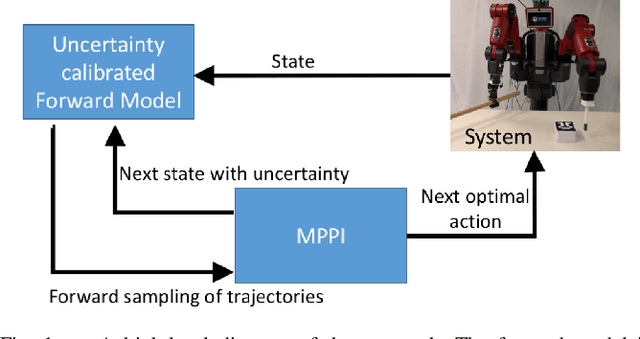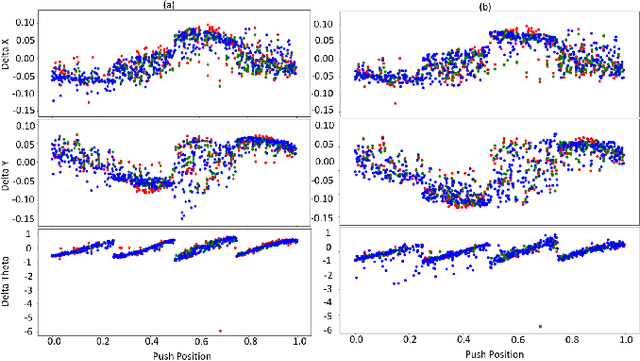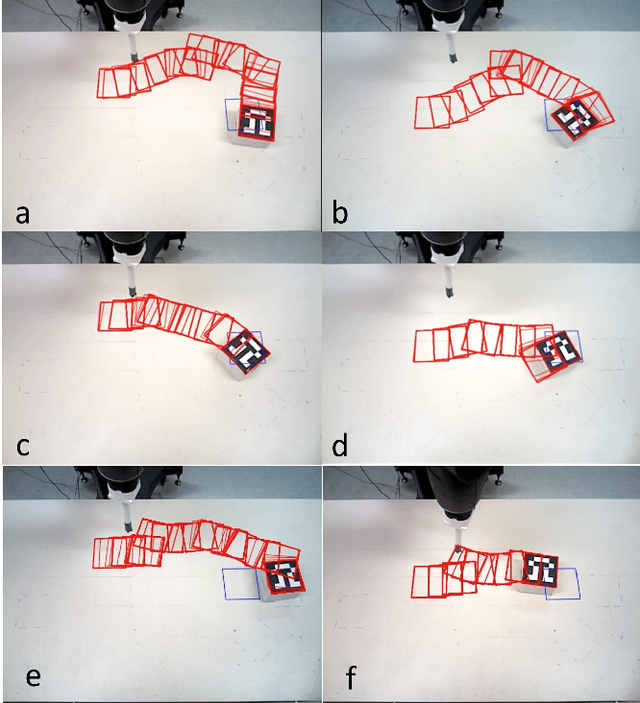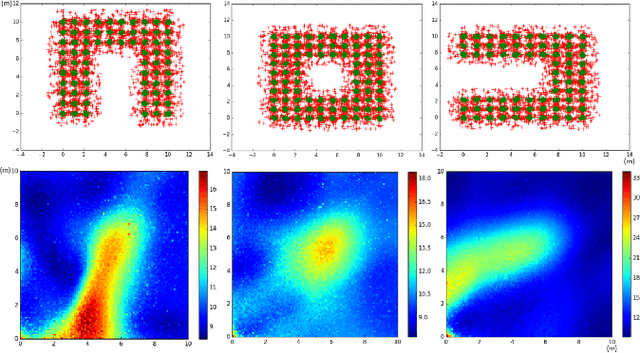Morteza Azad
Polyhedral Friction Cone Estimator for Object Manipulation
Nov 26, 2020



Abstract:A polyhedral friction cone is a set of reaction wrenches that an object can experience whilst in contact with its environment. This polyhedron is a powerful tool to control an object's motion and interaction with the environment. It can be derived analytically, upon knowledge of object and environment geometries, contact point locations and friction coefficients. We propose to estimate the polyhedral friction cone so that a priori knowledge of these quantities is no longer required. Additionally, we introduce a solution to transform the estimated friction cone to avoid re-estimation while the object moves. We present an analysis of the estimated polyhedral friction cone and demonstrate its application for manipulating an object in simulation and with a real robot.
Uncertainty Averse Pushing with Model Predictive Path Integral Control
Oct 15, 2017



Abstract:Planning robust robot manipulation requires good forward models that enable robust plans to be found. This work shows how to achieve this using a forward model learned from robot data to plan push manipulations. We explore learning methods (Gaussian Process Regression, and an Ensemble of Mixture Density Networks) that give estimates of the uncertainty in their predictions. These learned models are utilised by a model predictive path integral (MPPI) controller to plan how to push the box to a goal location. The planner avoids regions of high predictive uncertainty in the forward model. This includes both inherent uncertainty in dynamics, and meta uncertainty due to limited data. Thus, pushing tasks are completed in a robust fashion with respect to estimated uncertainty in the forward model and without the need of differentiable cost functions. We demonstrate the method on a real robot, and show that learning can outperform physics simulation. Using simulation, we also show the ability to plan uncertainty averse paths.
 Add to Chrome
Add to Chrome Add to Firefox
Add to Firefox Add to Edge
Add to Edge